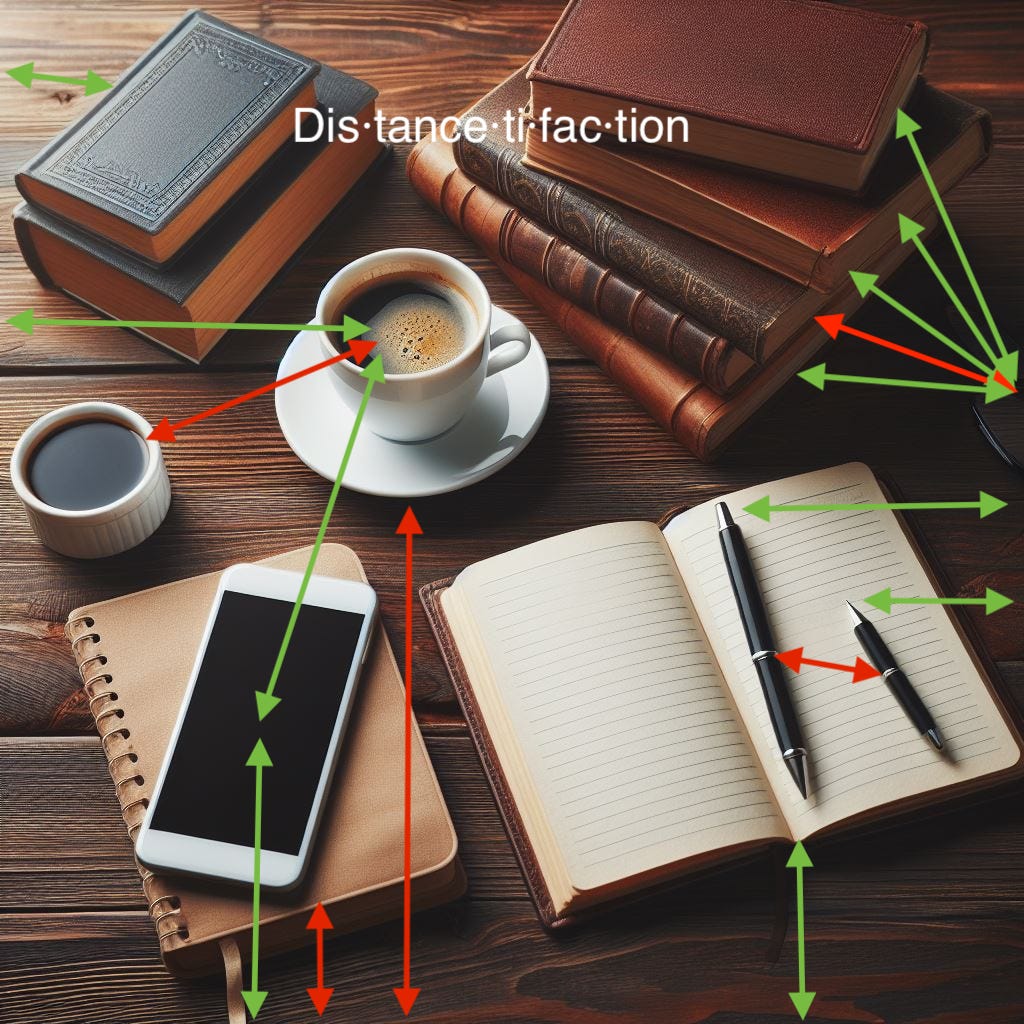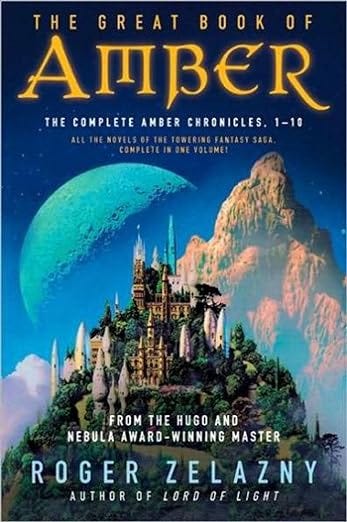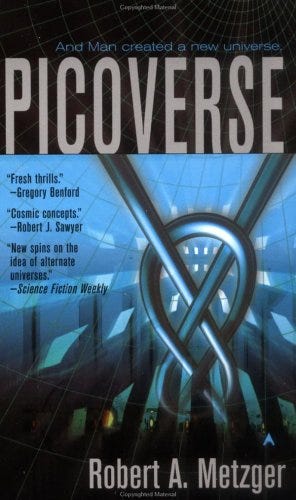The Cyril Report — 1002
The Problem With the Multiverse Solution
Local date: April 1, 2024.
Location: NYC, Midtown East, Bauman Rare Books.
Maureen, the manager of this establishment, confuses resentment with the menacing notion caused by the extended exposure to my presence. That’s a typical human error. Humans… everything has to be mapped to their narrow spectrum of emotions. The universe is far richer and more complex, but this is something humanity would only realize (if they do) once they Puzzle Out.
Ironically, the animosity between us is rooted in a misunderstanding that is based on this very human shortcoming. Maureen still loves to throw soft-bullying stabs at me every time she passes by and pretends to accidentally push items on my table a few inches away from Optimum.
‘Oh sorry ‘bout your Feng Shui Cyril! I hope your dissatisfaction won’t last long.’
It’s distancetification, you green-eyed simpleton ape.
It is my fault. I should have stuck to protocol and aim to blend in. Instead, I chose to educate a single human about a key sensation she never heard of. Back then she moved my perfectly salted coffee three inches to the left, making room for the book I was looking for. I attempted to explain. I even jotted the definition on a napkin:
Dis·tance·ti·fac·tion
noun:
Definition: the wholesome notion of satisfaction resulting from placing an object at the proper distance from oneself and other objects.
“Placing the coffee mug half an inch to the right from the middle of the table put me in perfect distantification.”
One would expect civilized gratitude, instead I earned the title ‘weirdo’ and a lifetime supply of whispers every time I visit. The whispers are usually exchanged with her fellow students who also major in English Literature. Young sapiens males normally seek the company of Maureen. They find an excuse to hang by her counter and ask for rare titles. Their stares and giggles don’t bother me. I’m immersed in my mission. Curiously enough, this month's focus is also influenced by a similar human misreading. Very much like a spoiled arrangement of wrongly-distanced items, pop culture missed the mark on some genres, depleting their potency. The best example is the concept of the multiverse. Once celebrated as one of the most intriguing sub-genres of science fiction, it has become a boring, predictable parlor trick. Perhaps of all of the science fiction blunders on this planet, this one is the most maddening. It feels like a bad case of missed opportunity to create the perfect distantification. Multiverse, parallel relatives, multi-dimensional travel, alternate time tracks—every which way the names morph—this literary device offers the most open-ended setup. Authors dabbling with multiverse concepts have virtually no bounds except for their imagination. Sadly, they are falling short. A glaring example is the comics industry, led by Marvel and DC, that created multiverse platforms, enabling the rehashing of the same characters and similar stories in perpetuity. Recently the MCU took the concept to the next level, abusing it to death. In a plausible multiverse there are endless possibilities, and thus infinite opportunities to tell new stories. Instead Marvel is using it to tell the same story with the same characters over and over again. It is also used to solve any continuity issues and plot loopholes. Greed is clearly being prioritized over creativity.
While the abuse of the multiverse concept reaches new lows, there are still glimmers of hope in modern creations, such as Rick and Morty. The writers of the show boldly push the boundaries of infinite realities and possibilities, leading to thought-provoking concepts. Although written as a comedy, these ideas are imaginative and on par with high-quality science fiction. I have marked three novels that handle this fascinating area as it deserves. Each one does so by taking a completely different approach, proving once again that striving for originality pays off.
The Chronicles of Amber, Roger Zelazny
This uniquely original work by Roger Zelazny was first published in 1970 still delivers a fresh original take on parallel worlds, that is organically weaved with human motivations and struggles throughout the plot. It was easy for me to feel an immediate affinity to the protagonist, Corwin, since like me he is not human, but then again he is human as they come. Corwin, Prince of Amber is very flawed and power-hungry, driven by the fierce competition with his siblings, over the control of Amber, the one real city. Every other reality is a projection or some aspect of Amber. The proper term used by Amberians is Shadows of Amber. Corwin is a charismatic storyteller, it’s hard not to get addicted to his voice from the first instance when we meet him waking up in a sketchy private clinic in New York, suffering from amnesia, and throughout his epic journey. Corwin’s brothers and sisters are as cunning and driven as he is, each in their own way. Their family relationships have evolved over hundreds of years to a complex balance of power. Maybe the best quote that describes these relationships is a comment Corwin makes about someone (from The Guns of Avalon, the second book): "I trusted him like a brother, that is to say, not at all."
Perhaps the element that keeps The Chronicles of Amber so relevant is the genius framework Zelazny created, one that describes the multiverse and its infinite realities as Shadows cast by Amber. This framework makes the reader a part of it too, as yet another Shadow. It is somewhat similar to the effect in The Neverending Story, in which the reader is pulled into the epic and becomes one of its characters. Now, more than fifty years after its debut, The Chronicles of Amber is still entertaining and gripping. We the readers are just Shadows reading about the original that casts us. That is what makes the stories of Amber timeless and relevant for every planet.
Picoverse, Robert Metzger
The novel approaches multiverses from a hard science fiction perspective. The narrative establishes a foundation by presenting fictional theoretical physics in a manner that seems plausible to the lay reader. Metzger does a commendable job of maintaining the consistency of this fictional science, ensuring a cohesive story and a highly enjoyable reading experience. In Picoverse, universes are manufactured—initially by accident, then deliberately, and ultimately uncontrollably.
I must admit that the reason this book resonates so well with me might be the fact that I’m a visitor to this world, assigned to assess it. Similarly some of the characters in Picoverse are also masquerading as humans, aiming to blend in the local society while pursuing a broader agenda. The multiverse framework in Picoverse is hierarchical. A universe is being cloned from and within a bigger universe, all way down and all the way up.
Transcending up and down that ladder is done by interesting characters, whose motivations and agenda are driven by their particular position in the multiverse ‘totem poll’. This topology is the perfect setup for an exciting adventure, and Mr. Metzger is taking full advantage of. Picoverse is an uplifting page turner. Well, for humans, it may feel somewhat alarming. But then again they will most likely brush off the concept as nothing more than a pure work of fiction. Well, Mr. Metzger, no the multiverse doesn’t work like that, but please keep pushing your creativity, you are getting closer.
Dark Matter, Blake Crouch
First, let’s kick the elephant out of the room: the science behind Dark Matter is based on the popular misconception of the observer in quantum mechanics. The story surfs the waves of this mistake and the fallacious role of consciousness in physical outcomes. However this doesn't take anything from the novel. Dark Matter is not a physics textbook, it’s a science fiction novel. As such, its science doesn’t need to be real; it must be consistent. And consistent it is—Crouch masterfully weaves a narrative that adheres to his science and lets the reader buy into his framework. This enables you to focus your attention on the human story and moral dilemmas. Dark Matter dramatizes the many-worlds interpretation of quantum mechanics, which posits that every decision splits the universe, allowing every possible outcome to exist in its own parallel reality. The plot is propelled by a device that enables the characters to traverse the infinite branches of reality. Crouch cleverly centers on one protagonist—Jason Dessen, a Chicagoan and washed-out scientist. Jason is torn from his world and loved ones and thrust into another version of Chicago where he is successful and famous, but his family doesn’t exist. Getting back home becomes an intense odyssey, during which Jason must navigate the multiversal funhouse mirrors of different Chicagos in an impossible struggle to return. In a multiverse where every decision branches out into reality, Jason’s journey confronts him with regrets, what-ifs, and the strangest versions of everything he holds dear. It’s a well known fact—though not on Earth—that the many-worlds interpretation is false. However, this kind of thought experiment will help humans Puzzle Out the correct interpretation.
I plugged these three books into our cultural neural matrix (conveniently disguised as my smartphone). Now it is calibrated and will effectively identify any fresh multiverse concepts that may pop out in literature, no matter how many times Maureen nudges my ‘phone’ away from Optimum.
Here are the links to the books Cyril reported on:
From Yoav Ilan:
The Path of Most Resistance and Other Stories is a collection of short science fiction stories, ranging across wide spectrum of sub-genres and setups — From Silicon Valley to the far reaches of space. It’s available in several formats including audio, narrated by Ray Porter.







